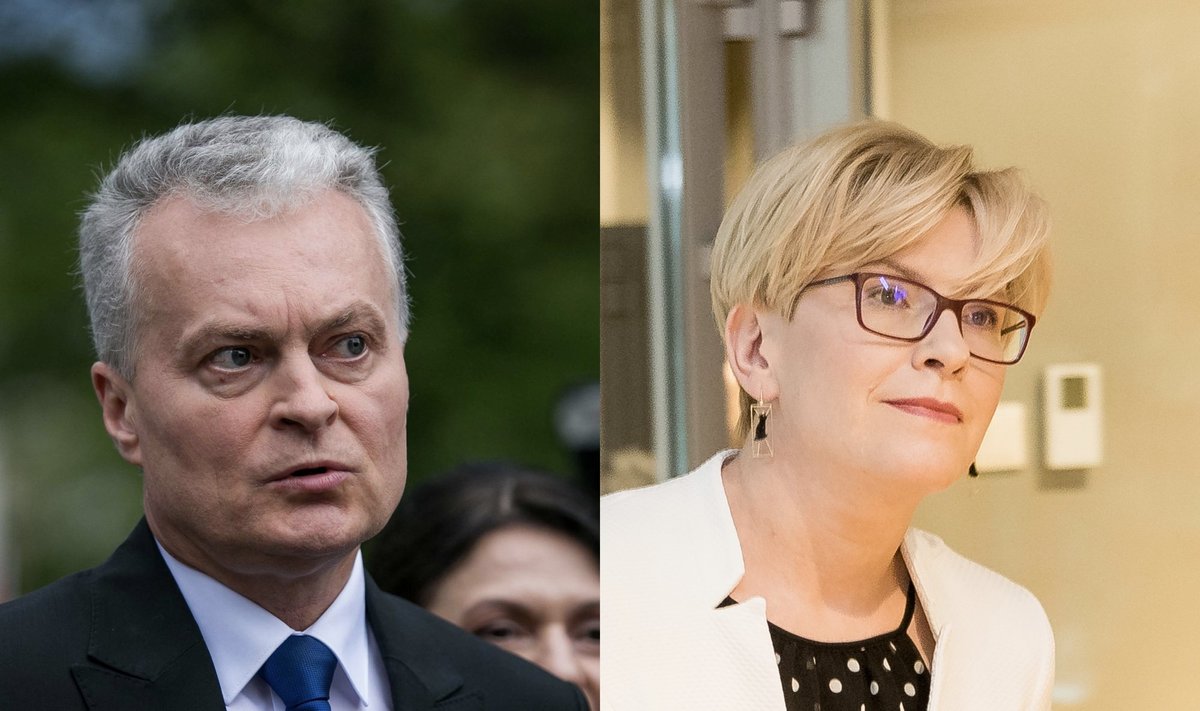Following conversations with politicians, diplomats and political experts, BNS provides the key arguments for and against the proposed changes.
Political tradition
For changes. The tradition needs to be changed if it's not good for the country. Dalia Grybauskaite deserved a place in Brussels for her personal competences. Lithuania is not the first European country where such disputes are being resolved through legal amendments or the Constitutional Court. Poland, Romania and Finland have also gone through such situations, and the focus on these issues shows that the government is more concerned about the European agenda.
Against changes. The HU-LCD is applying double standards in their bid to expand their influence as the party itself let Grybauskaite take their place at the European Council, and now want to take this right away from their political opponent Gitanas Nauseda. The harmonization of state leaders' powers depending on personal qualities or political affiliation is incompatible with the Western democracy tradition.
Constitutional mandate
For changes. Lithuania's relations with the EU should not be considered foreign policy relations as the EU differs from classic international organizations in terms of the adoption and implementation of decisions. The EU competence is directly related to the government's national policy, EU legislation can apply directly and is above national laws. Even if EU foreign policy issues are considered, the prime minister's participation would not be wrong as, under the Constitution, the government implements foreign policy in cooperation with the president. The president cannot be affiliated with a political party, therefore, he does not take part in European party meetings that are often held before European Council meetings, which undermines the president's, and subsequently the country's, influence.
Against changes. The president has constitutional powers to decide key foreign policy issues. The European Council sets the EU's common foreign and security policy. The EU is an international organization, despite being very specific, therefore, one cannot deny that it's part of foreign policy, all the more so, in Lithuania the Foreign Ministry is entrusted in coordinating EU issues. Any restrictions introduced by the Seimas or the government to attend European Council meetings would violate the president's constitutional rights in the area of foreign policy. Even if any issues under consideration were within the realm of the executive government, the president could still decide them as he is part of the executive government and ministers are accountable to the president. Any rotation between the president and prime minister depending on issues is practically impossible as sessions often involve different topics, and the European Council is a political club where one person's participation would ensure continuity. No country in the EU has any rotation in place. And party affiliation should not be overrated as leaders represent countries, not parties. Besides, Simonyte is not a party member as well.
Mandate issue
For changes. The Seimas and the government, not the president, play the key role when producing EU legislation. The European Council's decisions can have major impact on EU legislation. Lithuania's position is confirmed by the Seimas and the government, and due to the president's autonomy, there are no possibilities to ensure that the approved mandate would be complied with since the president is not accountable to the Seimas. The provisions of the Statute of the Seimas are constructed for the prime minister's participation in the European Council.
Against changes. Practical issues on how the president's mandate is harmonized with the Seimas' mandate were successfully resolved during Grybauskaite's presidential term after a provision was put in place that the president attends meetings with Lithuania's pre-agreed position. The European Council does not adopt legislation, it adopts political decisions and guidelines, and that is compatible with the president's role. Nauseda received the nation's mandate when he beat Simonyte in the presidential election, and nobody questioned the president's mandate at the European Council during the election campaign.
